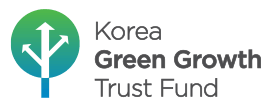Dubai Blockchain Strategy (Dubai - United Arab Emirates)
Dubai Blockchain Strategy (Dubai - United Arab Emirates)
Launched in 2016, when the Global Blockchain Council was created, the Dubai Blockchain Strategy is an initiative that aims to explore and evaluate the latest technology innovations that demonstrate an opportunity to deliver more seamless, safe, efficient, and impactful city experiences. Blockchain technology is perceived as a new, powerful tool that has potential to shape the future of the Internet with simple, safe, and secure transactions.
The Dubai Blockchain Strategy revolves around three main pillars: first, increasing government efficiency by transferring 100% of government transactions to the Blockchain network. To that end, 40 Blockchain-related workshops were organised, bringing together 30 different government bodies of various city sectors (such as energy, transport and logistics, tourism, health, education and employment, economic development, safety and justice, social services, municipal and land works and smart districts) to determine the applicable transactions that will be conducted through Blockchain, as well as to create a common Blockchain platform for the Government of Dubai and to develop strong Blockchain policies.
The second pillar of the strategy is focused on strengthening industrial activity by creating a new Blockchain-based business model. The action areas of this pillar are Policy Development, Blockchain Accelerator, Global Blockchain Start-up Competitions, and Private Sector Engagement. For that purpose, Smart Dubai launched the Dubai Smart City Accelerator and the Global Blockchain Challenge, in May 2017, which attracted 21 emerging companies from 18 cities across the world.
The third pillar consists of securing Dubai’s global lead in terms of adoption and implementation of Blockchain networks and transactions. Five key action areas were defined: Skill Development, Intellectual Capital, Blockchain Speaker Series, International Blockchain Award, and Academic Sector Activation. In this scope, the Emirate of Dubai now hosts monthly international Blockchain conferences and actively exchanges knowledge with smart cities across the world.
Sources:
http://www.smartdubai.ae/dubai_blockchain.php
https://smartcitiesworld.net/news/news/dubai-chosen-as-smartest-city-2309
https://www.cryptocoinsnews.com/dubai-set-achieve-goal-becoming-first-blockchain-government-by-2020/
Improved e-Governance and citizen services;
Improved Education and Training;
Improved supports for business.
Description of the specific objectives:
- Government efficiency: implement blockchain technology in all applicable government services;
- Industry creation: support the creation of a blockchain industry, empowering start-ups and businesses;
- Local and international thought leadership: lead the global thinking on blockchain technology and become the hub for blockchain intellectual capital and skill development;
- Become the first government in the world to implement all of its transactions using advanced Blockchain technology by 2020.
Smart Dubai Office; Dubai Future Foundation.
- Cybersecurity and data protection;
- Guarantee transparency in transaction verification and tracking;
- Avoid the digital divide (especially among the elderly citizens) and ensure alternative processes for services.
Blockchain technology applications in smart governance, smart economy, and smart people areas.
Smart Dubai partnered with the Department of Land and Property in Dubai to develop the world’s first Blockchain-powered government real estate network. This system provides a smart and secure portal to submit all real estate contracts, including sale and lease agreements. The database is connected with the Dubai Electricity and Water Authority (DEWA) and with banks, which allows users to pay their dues with digital checks. Transactions are fast, paperless and can be conducted from any location in the world.
Dubai has been chosen as “Smart City of 2017” by the jury of the 7th edition of the Global Smart City Awards, announced at the Smart City Expo World Congress Barcelona 2017. The project to adopt Blockchain Technology at a city scale earned the award.
The implementation of the Blockchain roadmap started in 2017, therefore more specific results and impact will only begin to show as Government entities begin to implement the blockchain pilot projects. Some expected results are related to transaction cost savings (5.5 billion dirhams spent on document processing every year), and reductions in duration, resources and paper usage during transactions.
Smart Dubai Office has defined a performance management framework that will regularly track the progress on all key performance indicators.
| Attachment | Size |
|---|---|
| Case Study Dubai - The first city on the Blockchain.pdf | 8.79 MB |


